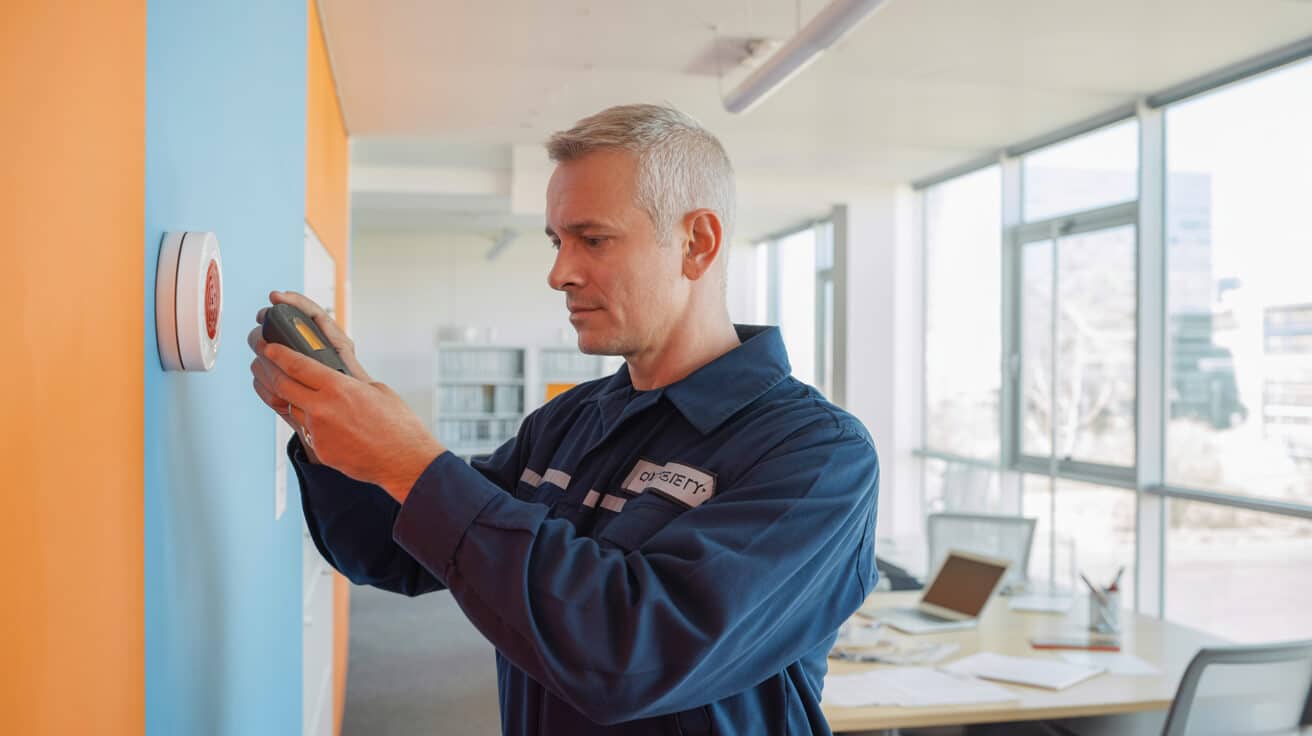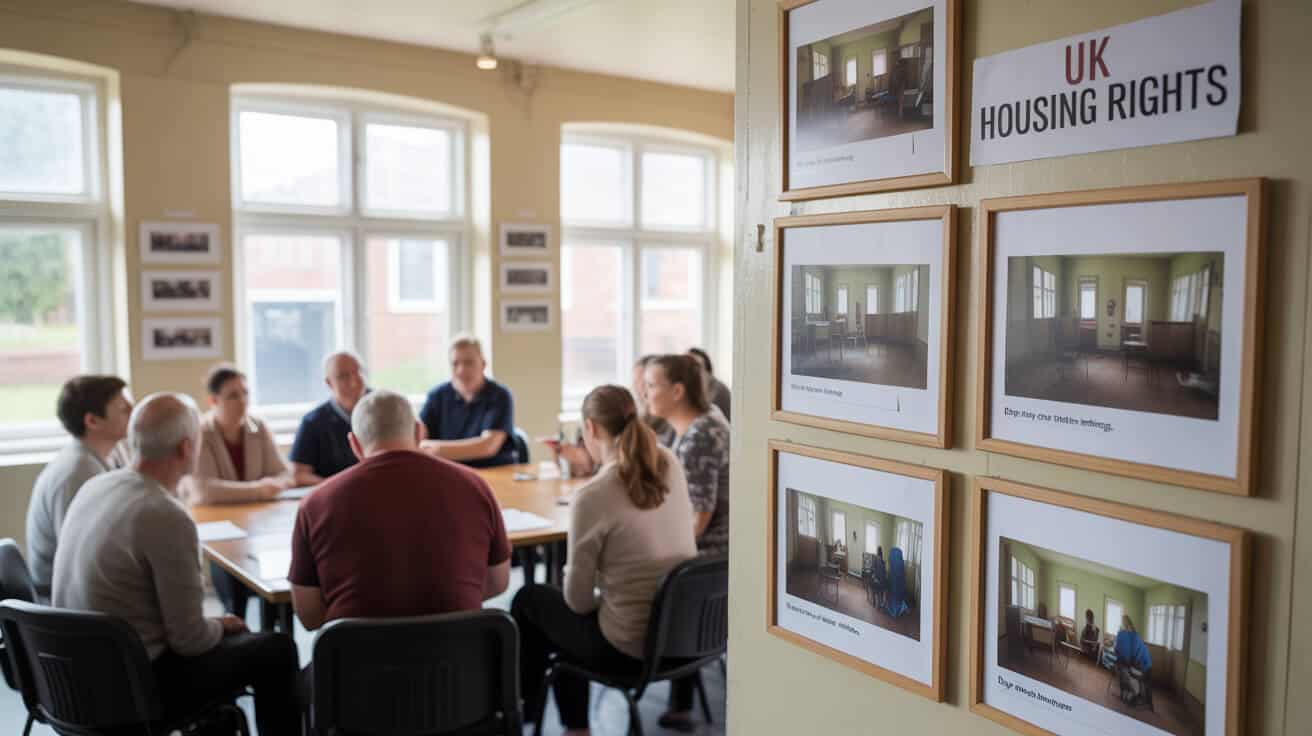 Locked Out What To Do Before Calling An Emergency Locksmith
Locked Out What To Do Before Calling An Emergency Locksmith
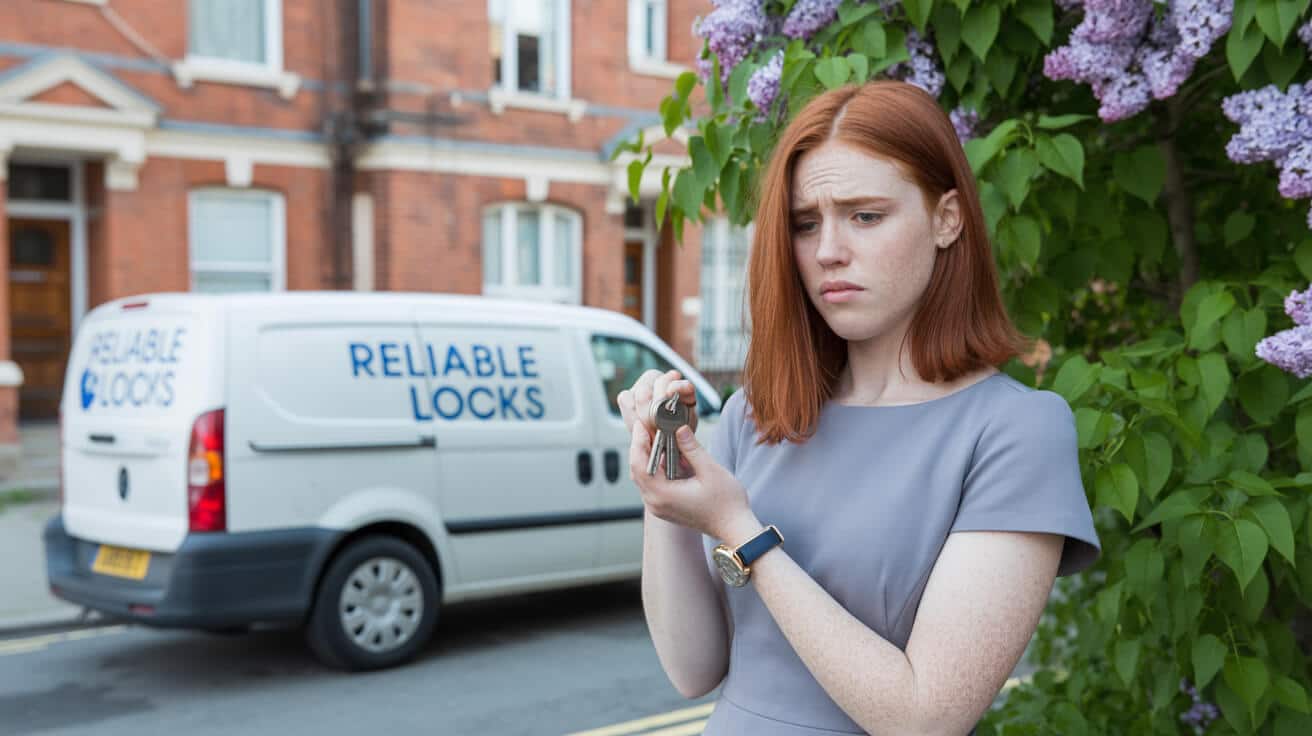
Locked out? What to do immediately before calling an emergency locksmith
A lockout isn’t just an inconvenience—it’s a flashpoint where panic, cost, and risk can spiral out of control. Your first response determines whether the episode becomes a minor speedbump or a full-blown ordeal. Move too quickly, you risk compounding the problem; act with intention, you’ll save time, money, and anxiety.
Five calm minutes now can save you hours, pounds, and headaches later.
Pause. Start with a perimeter check. Examine every entrance: front, back, side doors, conservatories, garages. Many people overlook secondary access after a stressful day—a forgotten back door or sash window could be the difference between waiting it out and regaining entry at no extra cost.
Think through your network. Did you entrust a spare to family, a neighbour, or a letting agent? People often forget about emergency sets until a quick message or call solves what seemed impossible. Managed building? Reception or building managers might have access—one ID check and the issue is behind you.
If you’ve got a smart lock, tap into your app, backup pin, or integrated key (sometimes concealed behind a sliding panel). Many new-builds and rental properties now offer remote unlocks. It’s worth knowing if your property manager can help in a pinch.
Safety trumps speed, always. If there’s anyone vulnerable inside—a child, elderly person, someone unable to open from the inside—or if you’re exposed to cold, darkness, or unsafe surroundings, escalate the situation immediately. That may mean calling 999, a neighbour, or, if safe, moving to a well-lit area to wait or make calls.
Re-check your pockets, bags, jackets, and car—all the places keys love to hide at the worst possible moments. Keys are rediscovered more often than you realise. If your lock feels jammed or sticky, try a measured approach: gentle wiggling, a check for debris, or realigning the handle. Minor issues can masquerade as major problems.
Still stuck? Resist the urge for a “quick fix.” Rushed forced entry nearly always costs more in repairs and lost time.
Is it legal or safe to re-enter your home without a locksmith? (And what should you absolutely avoid?)
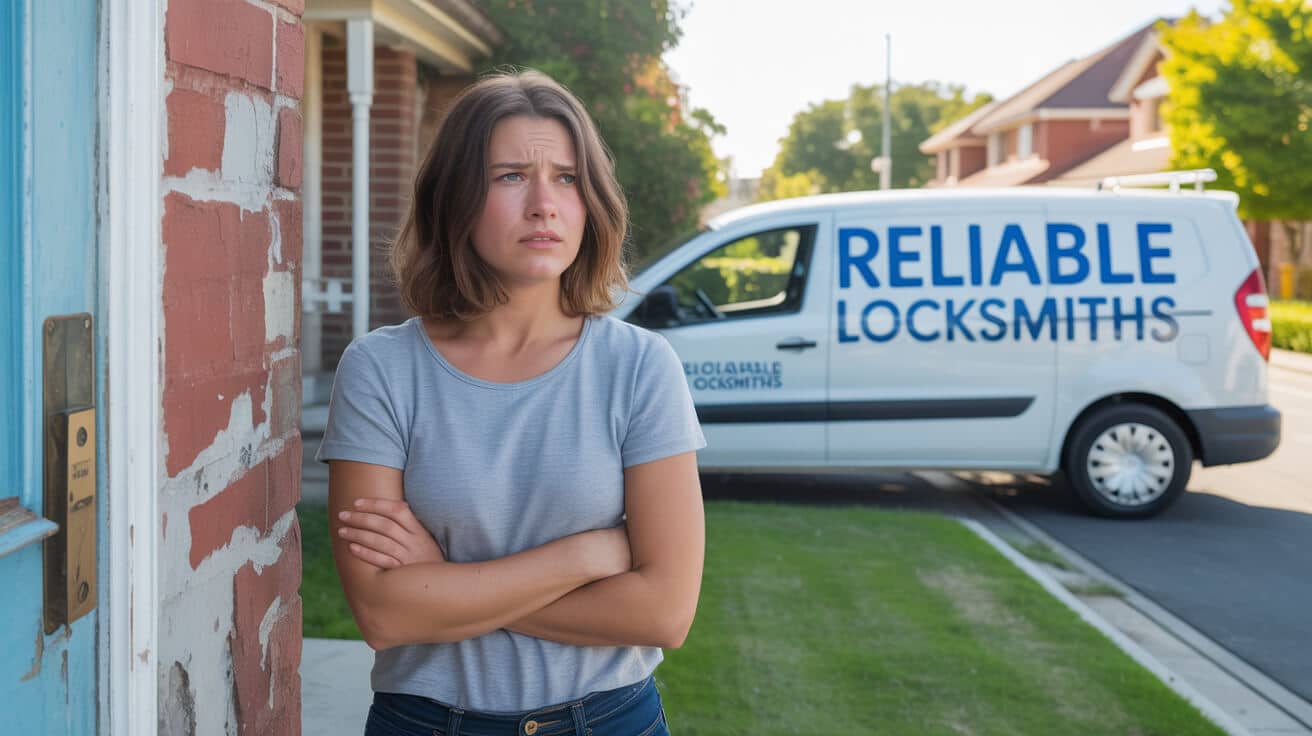
DIY Internet tips might tempt you, but the line between resourceful and reckless is razor-thin—and crossing it can void your insurance, cause legal headaches, or physically injure you.
Most problems resolve smoother and cheaper without force, leverage, or risky improvisation.
Priority one: trusted contacts—always. Call your partner, letting agent, landlord, or building manager. Management desks sometimes have protocols and will ask for ID, but it’s the least destructive route and many insurance policies encourage it (NFU Mutual, 2023).
Smart locks? Use app-based entry, backup codes, or property manager override. If your lock or home account is registered, customer service hotlines could trigger a reset or remote unlock.
Avoid the following at all costs:
- Forcing or snapping the lock.
- Bypassing via “slim jims”, credit cards, or makeshift picks.
- Breaking windows or doors.
Anything that damages hardware or structure can invalidate your building and contents cover or even break the law. In the UK, it’s illegal to possess or use lockpicking tools without proper licencing (Theft Act 1968).
The police and fire brigade are not there for routine lockouts—they’ll only attend if there’s risk to life, a vulnerable person inside, or a crime in progress. For everything else, they’ll refer you to a locksmith or letting agency.
Shortcut: Set up a well-secured spare (friend, coded box) and keep digital access options up to date. Preventing a disaster is always cheaper than fixing one.
What vital checks can prevent unnecessary locksmith costs?
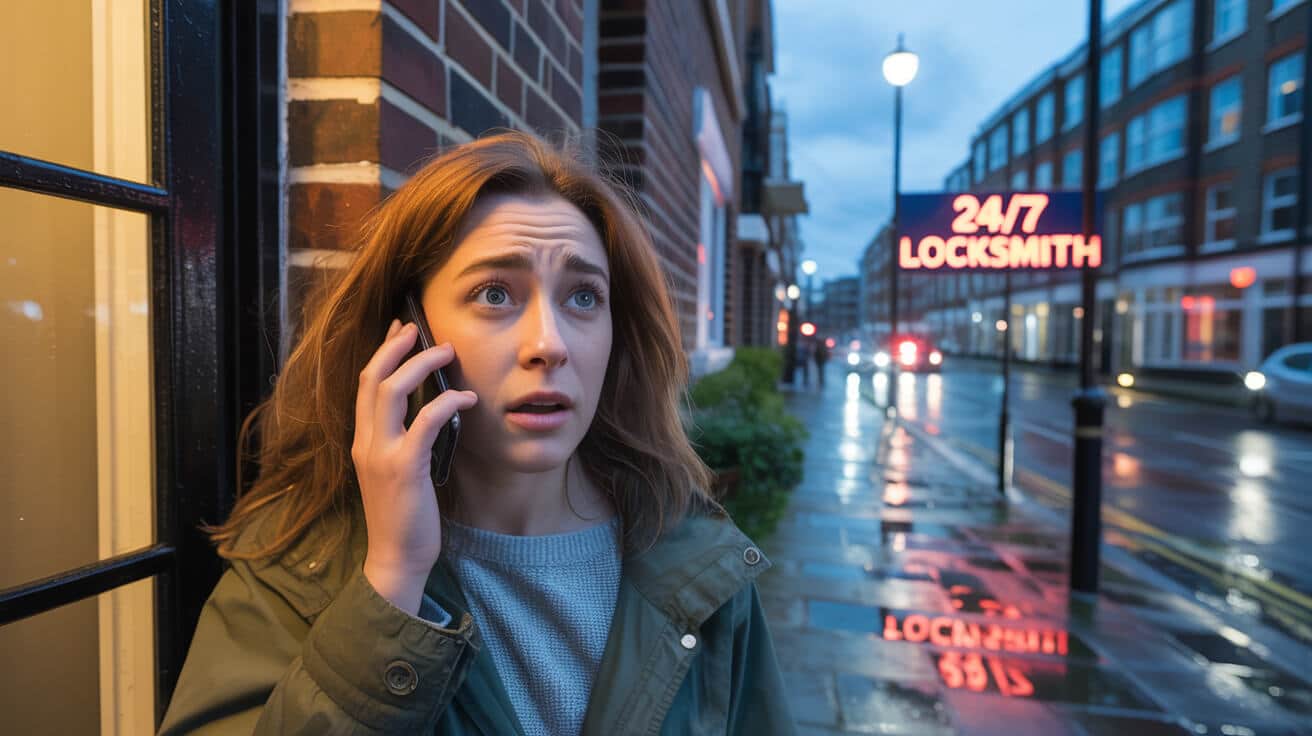
The moments before you call set the stage for what happens—and what you might pay—next. A methodical approach is your best money-saving tool.
Slow is smooth, smooth is fast—rushed calls create more trouble than waiting five extra minutes.
Property sweep: Circle your building again—doors, windows, basement, garden gates. Don’t force, but do try every latch, handle, and sash. Many “locked out” calls end with a sheepish grin when a window or utility door budges.
Key audit: Check every bag, pocket, coat, backpack, and car compartment—keys “appear” more often than you’d expect.
Lock type check: Photograph your lock (night latch, euro-cylinder, mortice, digital) and the full door. A good locksmith can often offer free advice on the phone, helping you avoid a misdiagnosis or the dreaded double callout fee.
Who can help? Is a housemate, partner, caretaker, or cleaner available nearby with a spare key? Even a call to a regular contractor might save the day.
Activity recall: Have tradespeople, cleaners, or maintenance workers recently been at your property? Sometimes someone leaves a back gate or stairwell open.
Preparation for the call:
- Address and precise location
- Lock/door style and issue
- Special access needs (flat, gated block)
- Who is present or at risk inside
- Unique circumstances (children, pets, time pressure)
Going in confidently with these details can mean faster service, fewer errors and less chance of extra charges.
What dangers—and hidden costs—come with DIY lockout attempts?
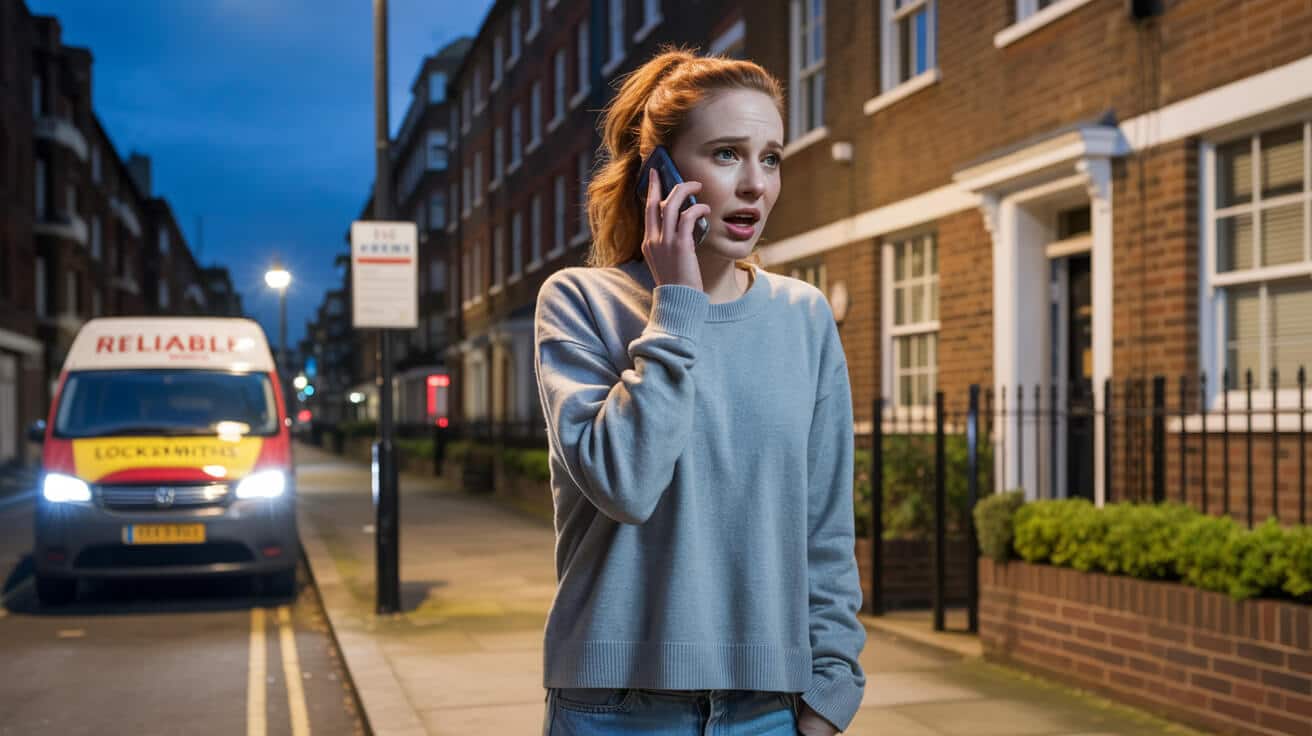
It’s easy to think you’ll “just wrench it” or follow a YouTube trick to get past your lock. But most quick hacks end up costing more than a professional service—often a lot more.
What seems quicker in a panic nearly always ends up pricier and slower.
Risks include:
- Expensive damage: Destroyed locks, bent doors, and broken frames easily triple the routine cost.
- Voided insurance: DIY force or use of unapproved tools can void policies outright—payouts denied for future break-ins or accidental loss *(Aviva Claims Review 2023)*.
- Personal harm: Injuries—slipped screwdrivers, hand cuts, falls—are common, especially when improvising with makeshift tools or climbing.
- Lower future security: Forcing a lock or frame can weaken your access points, inviting future break-ins or device failures.
- Criminal liability: Lock tools without qualifications are illegal to possess or use in the UK, regardless of your intent.
- Insurance refusal: Even a single break in cover, or unqualified tampering, gives insurers a loophole to reject your claim.
- Chain reactions: One misstep (say, a snapped lock barrel) can mean replacing an entire multipoint door system—far costlier and more disruptive than a simple entry call.
If it feels desperate, it’s safer—and usually cheaper—to call a reputable professional.
When does your situation genuinely call for an emergency locksmith?
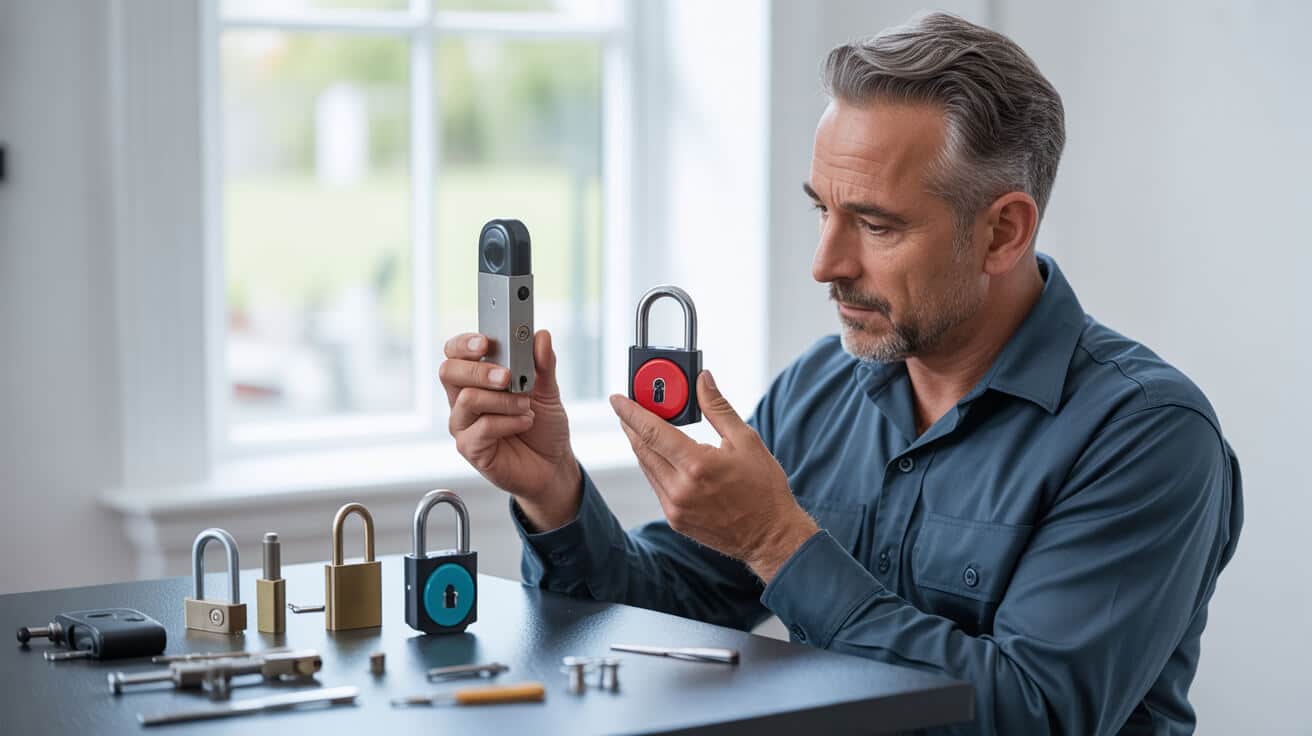
Not every lockout requires an emergency callout—and those who know when to wait save both money and stress. The trick is honest risk assessment.
Emergencies are about people and safety, not just schedules and keys.
Call an emergency locksmith now if:
- A child, elderly, disabled, or otherwise vulnerable person is trapped inside and unable to exit safely.
- Weather, time of day, or neighbourhood safety puts you or anyone waiting in danger.
- Clear evidence your property has been tampered with or targeted (forced locks, missing keys, tools left behind).
- There are no other realistic, safe options and waiting could put someone at risk.
Wait or solve differently if:
- Someone with access is already on the way and you can wait in safety (car, friendly neighbour, public place).
- Your property management, landlord, or agent can unlock within a reasonable time (and with proof).
- You have a known, safe place to stay until standard servicing hours—rates soar late at night.
- The property is secure, empty, and no person or animal risks harm by waiting a bit longer.
If in doubt, consult All Services 4U for advice—they’ll steer you towards the safest, fastest, and most cost-effective solution, rather than defaulting to an unnecessary call-out.
Will police, fire brigade, or other services help with a lockout?
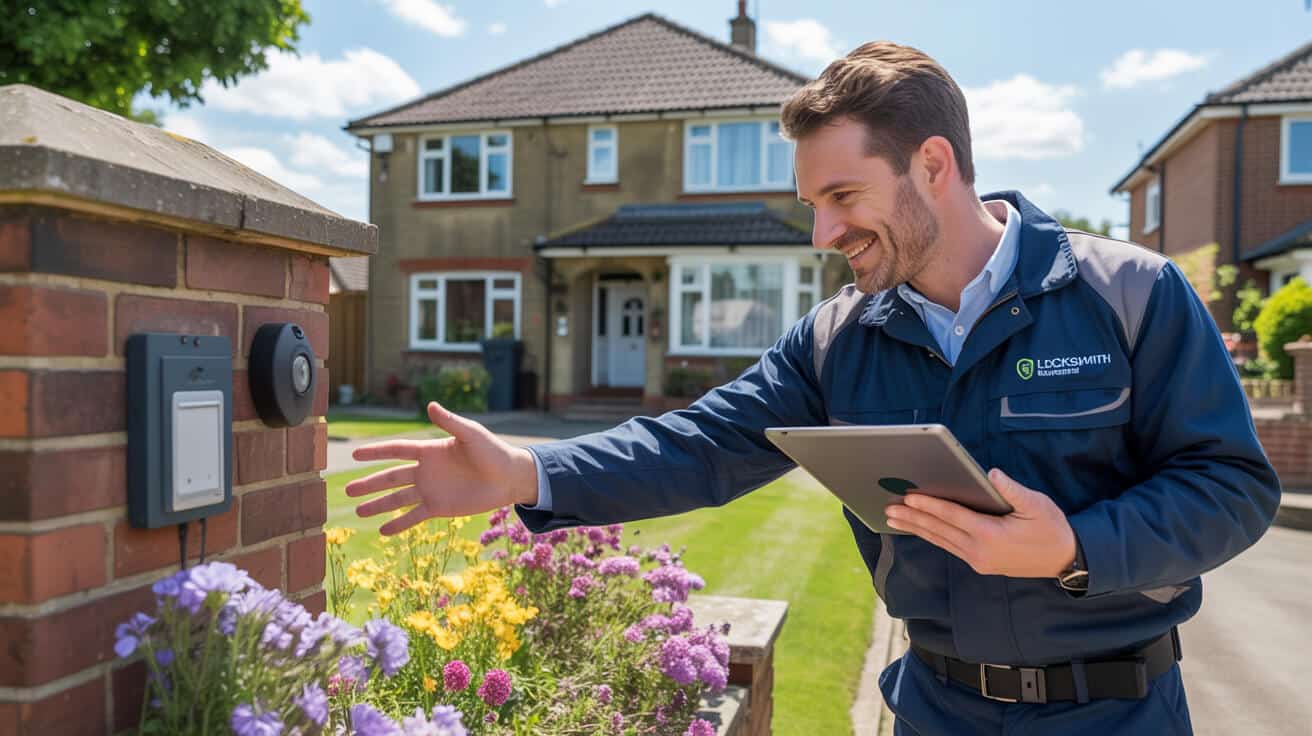
The rules are clear. Routine lockouts are not a job for the emergency services—unless there is an immediate threat to life, health, or security.
The right help at the right time prevents wasted calls and unnecessary expense.
Call 999 or 112 only if:
- A person is trapped and at immediate risk (e.g. medical emergency, very young or frail resident)
- There’s a real or suspected crime (break-in, tampering, tools at the scene)
- Animals are in distress inside the home
For all other situations, you’ll be referred to the appropriate locksmith or your letting agent. If you rent, keep your agency’s or landlord’s emergency contacts handy; in managed blocks, on-call staff may have secure solutions.
Not sure what’s urgent? The police non-emergency number (101) or your property manager can guide you. Always err on the side of safety, but don’t clog the lines for standard lockouts.
The smart lockout checklist: reduce panic, cut your costs
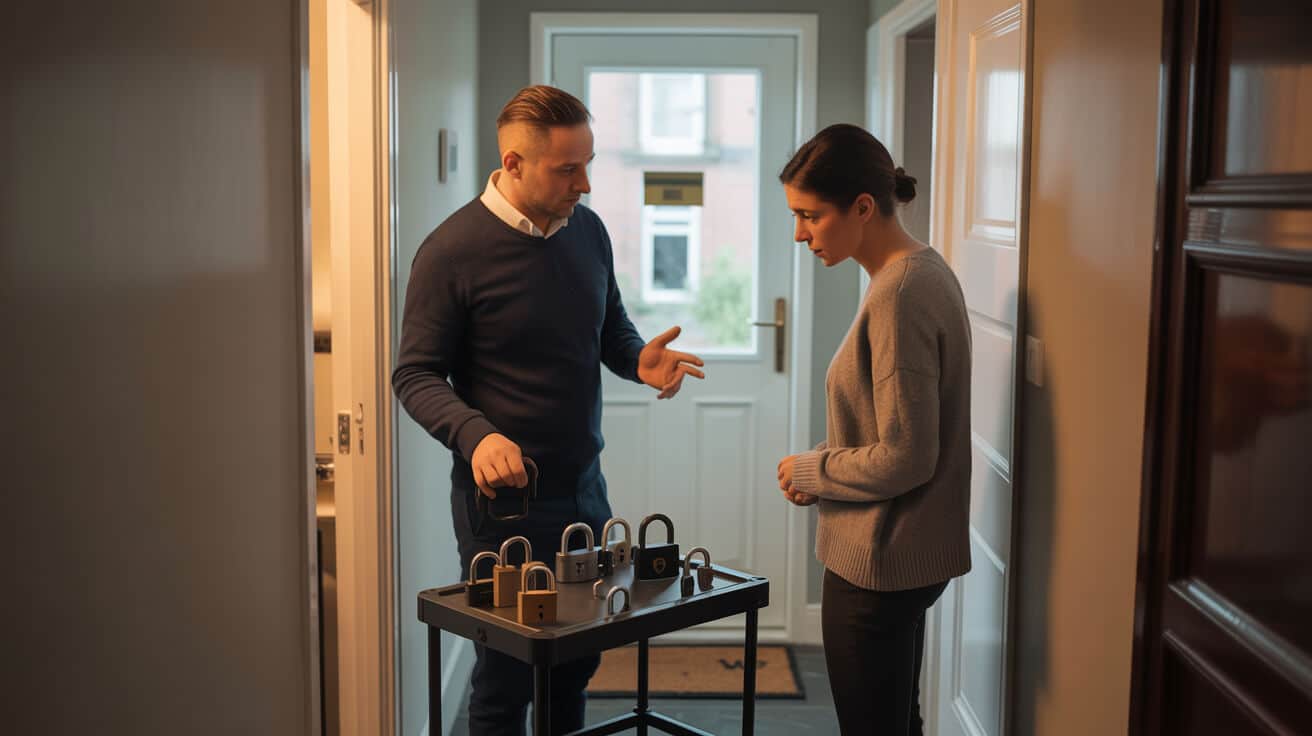
Every lockout is a test of your current systems—and a chance to improve for the next time. Method beats panic every time. A calm, step-by-step approach saves time, maintains safety, and often means a better outcome for your wallet.
- Prevention is power: Arrange for a spare with someone reliable, or invest in a secure key box or digital lock.
- Preparation is insurance: Snap photos of your locks, keep access codes safe, and retain up-to-date ID and proof of residence.
- Prioritise safety: Always, especially when kids, older adults, or pets are involved.
- Plan for next time: Once resolved, review how the lockout happened—what could you put in place so it never happens again?
Your next move after a lockout can define the entire day—choose wisely and protect your future self.
All Services 4U: Your trusted partner in lockout emergencies
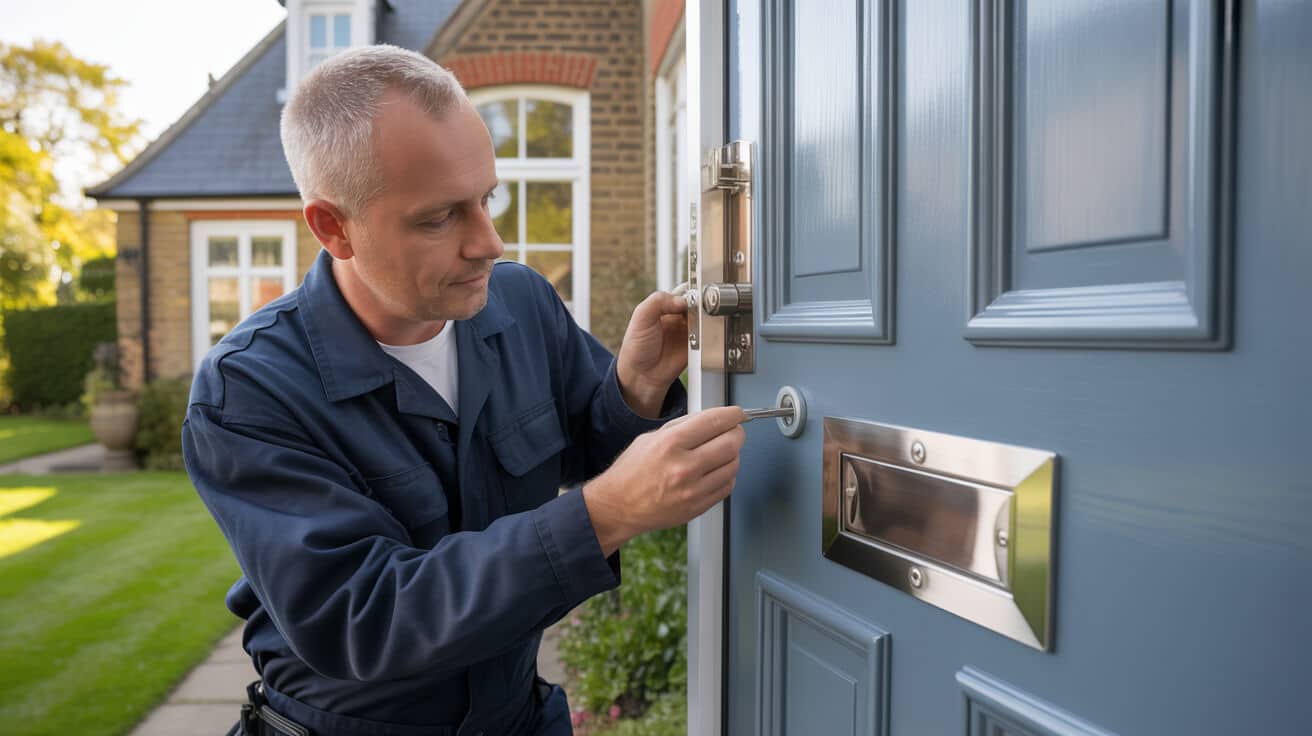
A lockout calls for composure and expertise—not a frantic scramble that risks your safety or property. All Services 4U brings both. Our emergency locksmiths work fast, respect your property, and always follow the safest, least-destructive methods. We understand how stressful a lockout feels—whether you own, rent, manage, or maintain property—and we’re committed to transparent pricing, clear communication, and strict compliance with all UK rules.
When minutes and details matter, trust All Services 4U to find the best solution—putting you, your people, and your property first. Don’t risk costly repairs or insurance headaches; reach out anytime for advice or urgent entry. Protect your property and your peace of mind with a team that puts your interests first. You’re not on your own; you’ve got us, right when you need it.
Frequently Asked Questions
What overlooked actions give you the best shot at re-entry before calling for expert help?
Checking every entrance—especially the non-obvious ones—often makes the difference between waiting outside and solving a lockout on your own. Many property owners think only in terms of their main door, but around 22% of UK residential access mishaps are resolved via an unlocked window, side gate, or communal entrance (HomeSafe UK, 2023). Even a forgotten code for a digital lock or a key left with a neighbour can spare you the inconvenience and expense of an emergency callout.
Walk the full perimeter, taking note of less-used exits, garage doors, and secondary gates. In blocks or managed buildings, shared corridors and fire escapes can sometimes be overlooked. Pause to double-check whether a family member, roommate, or friend has a spare—much more common in flats with shared responsibility. If you have a smart lock or app-based access, test every possible backup, including any codes stored in your device’s cloud. Don’t overlook that trusted neighbour or building manager who may have a spare: recent surveys show almost one-third of urban tenants benefit from community sharing arrangements.
A calm circuit around your property and a quick message to neighbours can shift a lockout from crisis to quick fix.
Safety first: If anyone vulnerable or at risk is inside—especially children, elderly, or pets—move quickly to escalate. But for most situations, persistence and resourcefulness are your strongest allies for a stress-free result.
Proven last-ditch checks before dialling a locksmith
- Walk the exterior: windows, shed doors, garden gates, bike stores, and communal entries
- Contact all trusted holders of spare keys or access codes (neighbours, concierge, landlords)
- Test smart locks or digital entry with backup info
- Review any agreements about shared emergency access within your building or community
- Only escalate to professional help when you’ve checked these options
Which property access tricks actually pass legal, ethical, and insurance test?
Only sanctioned, non-destructive actions—inspecting for unlocked access and contacting authorised keyholders—are deemed safe and claim-friendly. Using makeshift tools or forcing entry isn’t just risky: it’s likely to breach both your insurance contract and the law.
Insurers such as Hiscox and Aviva routinely decline claims for damage caused by “DIY” unlocking attempts, especially where evidence of force or tampering is detected (Policy Review Board, 2022). The UK’s Theft Act 1968 explicitly forbids unqualified possession of lock tools, and even a well-intentioned shortcut—like prying, picking, or wedging—can leave your property non-compliant for future claims. Instead, best practice is to document all access efforts with photos or messages and notify your property manager or agent of the situation. Recent claims data shows owners who provide a simple, time-stamped record of safe, non-invasive steps have a much higher approval rate for accidental damages if they later occur.
Your best cover comes from calm process and clear records, not quick fixes or force.
Reputable providers like All Services 4U use regulated, insurance-validated techniques that never invalidate your policy. DIY “hacks” not only risk property damage, but also legal and financial headaches long after the lockout is solved.
Fail-safe and policy-friendly solutions
- Inspect all accessible, legitimate entrances first
- Ask authorised keyholders or verify with concierge/building staff
- Keep a log (even quick photos) of every step for insurance
- Never attempt force or use non-standard tools—even in frustration
- When in doubt, verify methods with your property manager or insurer
How does assembling the right details make an emergency locksmith service faster, safer, and cheaper?
Providing precise, relevant details—address, photos, lock make/model, urgency, and potential hazards—means you get help that’s targeted, efficient, and often less expensive. According to the Master Locksmiths Association (MLA), 41% of “repeat visits” and costly delays in the UK occur due to missing or unclear information at first contact (MLA, 2023).
Start by photographing the main lock and door hardware, zooming in on any branding (Yale, ERA, Banham, or keypad types). List the full property address, including unit numbers and coded gates, and specify any special restrictions (out-of-hours access, building alarms, vulnerable residents). Disclose whether keys are lost or suspected stolen—this shifts protocol for the technician and may trigger code changes or extra checks. If your lock has a history of malfunctioning, mention this to help the specialist pre-empt potential complications. All Services 4U routinely requests this information upon dispatch: the result is more accurate quotes, less waiting time, and minimal surprises on the bill.
One sharp photo and a quick summary of your situation can put your locksmith in the right place with the right gear—first time.
The more you prepare, the more control—and peace of mind—you keep during an already stressful event.
Critical info to have ready before the emergency call
- Full property address with all entry instructions
- Clear photos/brand of affected lock(s)
- Any codes, alarms, or unique entry barriers
- Info about people or pets inside and the level of urgency
- Whether keys are lost, stolen, or simply forgotten
- Communication details for building management if relevant
What can really go wrong—financially and physically—if you attempt DIY lockout fixes?
DIY lock opening often kicks off a cascade of extra costs, ongoing security risks, and sometimes even legal issues. What might seem like a clever shortcut—wedging a card, forcing a latch, or unscrewing hardware—can void insurance, breach lease terms, and leave your property less secure for months.
ABI (Association of British Insurers) data from 2022 shows nearly 30% of lock-related claims are denied due to evidence of unqualified tampering. Homeowners frequently pay out-of-pocket for lock and frame repairs, which escalate from £150 for cosmetic fixes to over £1,000 if security standards are breached. “Quick hacks” can warp frames, damage alignment, leave locks jamming intermittently, or reduce fire door integrity—problems discovered only at inspection, or after the next emergency. Tenants risk formal breach notices and lost deposit for unauthorised interference.
Repairs for what seemed a tiny nick or bent lock often cost more than the whole callout would have.
All Services 4U professionals practice non-destructive entry and will clarify the longer-term implications of every action they take, keeping your property value and warranty intact.
What DIY attempts can really cost you
| Method | Frequent Result | Usual Cost (UK) |
|---|---|---|
| Credit card/pliers | Lock misalignment, irreparable | £150–£400 |
| Picking/prying tools | Insurance/lease invalidation | £500–£1,500 |
| Cosmetic “scrapes” | Deposits lost, redecoration fees | £80–£300 |
| Locksmith (certified) | Warranty/cover remains valid | £70–£120 |
When does an emergency locksmith become non-negotiable—and how do you triage the call?
The moment anyone’s safety, health, or security is threatened—or when property is at tangible risk—there’s no substitute for rapid escalation to a vetted emergency locksmith. Deliberation or delay in these moments can trigger serious legal, financial, or reputational harm.
Lockouts involving a vulnerable person (child, elderly, ill), visible property damage (break-in, weather, water leak), or environmental threats (fire, flood) require immediate action. A 2022 UK Trading Standards bulletin flagged a doubling of fines and legal consequences for landlords or agents who failed to act promptly in cases where safety was at stake. Out-of-hours emergencies can incur premium rates—often 1.8 to 2.5 times the standard callout—but the alternative may be injury, further loss, or expensive regulatory consequences. Don’t forget to request credentials or licencing proof for any service—MLA-certified professionals update their registry in real time for verification.
Every minute counts in a genuine emergency—the decision you make shapes not just the outcome, but your property’s future compliance.
If your scenario is ambiguous, All Services 4U will freely advise, ensuring you neither overreact nor miss a true emergency.
Should you call immediately or wait? Triage triggers
- Is anyone inside at medical, physical, or emotional risk?
- Evidence of forced entry, flooding, or active fire threat?
- External dangers (crime, weather) making waiting unsafe?
- If yes to any, act now. If not, confirm your info, then seek approved help.
What help—if any—should you expect from emergency services or authorities when locked out?
UK emergency services are only deployed when genuine life, health, or major security risks are in play. For ordinary lockouts, even the most sympathetic responders must legally decline involvement. According to the NPCC and Fire Brigade guidance (2023), 86% of residential lockout calls are re-routed to property managers or professional locksmiths unless someone is endangered.
Police may attend if a break-in is suspected or a child is alone and at risk, while fire teams reserve intervention for smoke, fire, heatstroke, or imminent danger. If your case is routine—no one vulnerable inside, no crime in progress—the fastest route is via landlord, block manager, or a registered locksmith. In commercial premises, most insurance lines require your emergency number be called before approaching authorities unless a crime or injury is involved. Note: inappropriate 999 calls risk fines and subsequent non-response for repeat misuse.
Clarity about who to call—and when—turns confusion into resolution, ensuring safety and keeping you within your rights.
All Services 4U supports clients in rapidly determining if police, fire, or medical intervention is warranted, or if another solution keeps the process fast and above board.
Lockout scenarios and the right first contact
| Lockout Type | Primary Response |
|---|---|
| Vulnerable person/medical/distress | Police/Fire (999/112) |
| Visible break-in/tampering | Police before locksmith |
| Ordinary lockout/routine inconvenience | Property agent/registered locksmith |
| Communal flats/rental no safety issue | Landlord/property management |
If you want every lockout to end with certainty and zero fallout, remember: your method matters as much as your speed. All Services 4U offers not just an open door, but lasting reassurance and security—so you move forward, every time.


